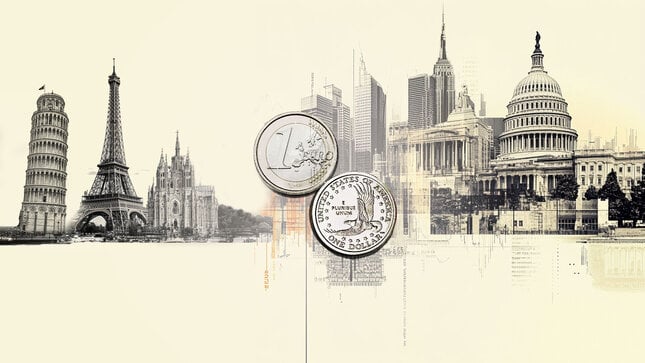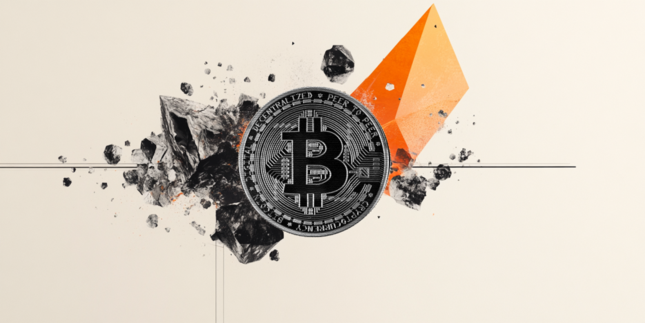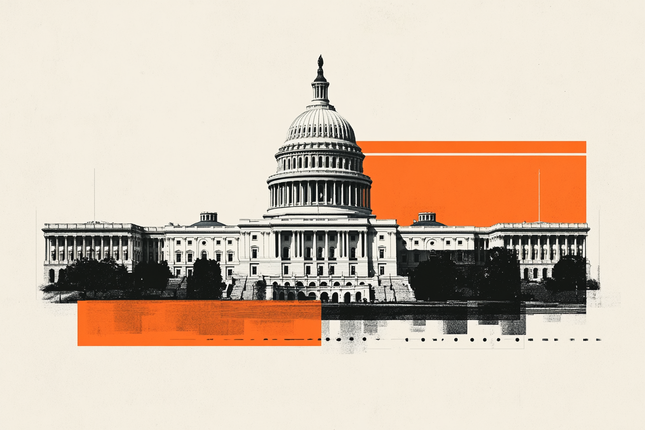Why bitcoin and other cryptocurrencies are leaving the opposition and becoming part of the financial system
So far, bitcoin and cryptocurrencies are just starting to enter real economy, with their proliferation being stymied, among other things, by the legislative restrictions passed in various countries. The SEC has recently likened certain cryptocurrencies to digital assets or securities. In contrast, the Singaporean authorities see cryptocurrencies as a legal tender rather than an asset. Regardless, the fact that cryptocurrencies are slowing gaining the recognition of regulators means that they will not become a challenge to the central banks. They are already starting to be incorporated into the overall financial system, and soon traditional market players will be ready to work with them.
"Today, banks are beginning to build blockchain networks among themselves, making it possible to speed up the exchange of information on transactions and their accounting and to store this information in a decentralized manner," comments Vladimir Gorbunov, CCO and Co-Founder of Crypterium. "The bank’s objective in using blockchain technology is evident. The technology makes it possible to reach a consensus where none exists, guarantee a higher level of trust, and protect the entire system. That is why banks are actively integrating blockchain and will continue to do so in the future."
This transition will take place under the control of the central banks, many of which, we believe, will soon start issuing their own cryptocurrencies. They are already taking steps in this direction and discussing various models. A central bank could perform settlements through the blockchain infrastructure using a mobile app.
"National anti money-laundering requirements that countries have, including the stringent requirements enforced by the US, will be implemented through blockchain solutions offered by innovative fintech companies. Blockchain is a revolutionary innovation that inevitably will be, and in fact already is being adopted by Scandinavian countries, as well as Estonia and Russia. Blockchain promises a Central bank's monetary policy the kind of transparency mechanism that has never been seen before," says David Drake of LDJ Capital; a strong advocate and a family office investor in blockchain and cryptocurrency globally. "The JOBS Act signed by Obama on April 5, 2012 covered the legal framework of US laws to embrace KYC and anti-money-laundering standards. Blockchain allows to fully meet these transparency requirements.”
This transition would be explicitly tied in with a reduction in the circulation of cash (which is being buoyed primarily by consumer operations). Cash interferes with an effective monetary policy, and countries have long been searching for a way to gradually abandon banknotes and coins, including as a way to reduce fraud and increase transparency.
“The issue of anti-money laundering/know your customer is definitely slowing down the wider acceptance of cryptocurrencies,“ says Katrina Arden, an attorney and founder of Blockchain Law Group. “And even though the adoption of the AML/KYC procedures will eliminate the anonymity of parties in the transactions, the overall benefit of a greater integration of the cryptocurrency payments will outweigh it.”
In this context, the widespread practice of laundering money through cryptocurrencies causes particular skepticism. However, there are already solutions on the market that are designed to prevent money laundering through cryptocurrencies. One of these solutions is AML Bitcoin.
"Up until now, banks and governments have been apprehensive about the use of cryptocurrencies as they do not meet American banking standards, the directives of The Patriot Act and other regulatory documents, in other words they are not AML compliant," says NAC Foundation CEO Marcus Andrade. "We developed AML Bitcoin to address these concerns and to offer the market a fully lawful alternative. Right now, several American banks are testing the use of our product for interbank transfers. We believe that our solution will save millions in exchange fees."
Attempts have already been made to transition central bank operations to mobile payments and blockchain: Denmark’s Central Bank launched the app Danske Bank MobilePay, and by August 15, 2017, its nearly 3.6 million regular users have completed over 422 million transactions. In Sweden a similar mobile app, Swish, handles more than 100 million transactions per year. Estonia is contemplating issuing its own cryptocurrency, called EstCoin, which would make it the first country to hold a government-supported ICO. In Russia, the Central Bank is testing a blockchain for banks, Masterchain, and the first transactions have already been performed. It is not clear at this point how serious the Indian authorities are about creating their own digital currency, but there is already information that the Reserve Bank of India is planning its launch. Even the name has already been chosen — "Lakshmi", in honor of the goddess of wealth, fortune and prosperity.
While this transition would mean more convenience for users (and lower costs, even compared to ordinary cards), there is still the question of anonymity. Blockchain participants are anonymous, but the content of their wallets and the transaction streams between them are transparent and open to the public. I believe that an increase in transactions will gradually lead to the possibility to connect the data on transactions to the data on wallet holders. Therefore, in the era of central bank blockchain currencies the overall transparency of the financial sector and the economy for the state will, unfortunately or fortunately, increase considerably. All eyes are on the experiments in the Scandinavian countries, South Korea and Singapore. It would appear that there will be plenty of conclusions to be drawn.
While the information in this document is believed to be accurate, ICOBox makes no representations or warranties, express or implied, with respect to the completeness or accuracy of the information contained herein. The information presented in this document may include certain statements, estimates, and projections. Such statements, estimates, and projections reflect various assumptions by ICOBox concerning anticipated trends, which assumptions may or may not materialize. No representations are made as to the accuracy of such statements, estimates or projections, and actual performance may be materially different from that set forth in such statements, estimates or projections. Prospective financial results may be affected by fluctuating economic and political conditions and are dependent upon the occurrence of future events that cannot be assured. ICOBox makes no warranty or assurance regarding the achievability of projections or the data, information, and assumptions relied upon herein. Opinions and estimates constitute our judgment as of the date of this material and are subject to change without notice. This document is for information purposes only and is not intended as an offer to sell securities, cryptocurrency or tokens, nor does it contain any recommendations or advice on any investments in any particular company or named assets. ICOBox expressly disclaims any and all liability for any representations, expressed or implied, contained in, or omitted from, this material. ICOBox is a provider of SaaS solutions for companies seeking to sell their products via distribution of tokens (ICO). ICOBox does and seeks to do business with companies covered in its research reports and buy any named assets.
Editors’ Picks

EUR/USD: Fed calm, ECB steady, but the Dollar still leads Premium
EUR/USD is still struggling to find real traction. The pair has tried to stabilise, but momentum keeps fading, leaving the door open to further weakness.

Gold: Falling US yields, geopolitics help XAU/USD hold ground Premium
Gold (XAU/USD) gained traction and climbed above $5,200, ending the fourth consecutive week in positive territory. The next round of US-Iran talks and crucial macroeconomic data releases from the US will be watched closely by market participants in the short term.

GBP/USD: Will Pound Sterling defend key 1.3450 support ahead of US jobs data? Premium
The Pound Sterling (GBP) entered a bearish consolidation phase against the US Dollar (USD), after having tested critical support near the 1.3450 level on several occasions.

Bitcoin: Another month of losses, and it’s been five
Bitcoin (BTC) price is stabilizing around $68,000 at the time of writing on Friday, but the Crypto King is poised to close February on a fragile footing, marking its fifth consecutive month of losses since October and a rare start to the year with back-to-back monthly corrections.

US Dollar: At a crossroads; Fed steady, tariffs in flux Premium
The US Dollar’s (USD) upward momentum from the previous week seems to have encountered a tough nut to crack in the 98.00 region, as measured by the US Dollar Index (DXY).
RECOMMENDED LESSONS
Making money in forex is easy if you know how the bankers trade!
I’m often mystified in my educational forex articles why so many traders struggle to make consistent money out of forex trading. The answer has more to do with what they don’t know than what they do know. After working in investment banks for 20 years many of which were as a Chief trader its second knowledge how to extract cash out of the market.
5 Forex News Events You Need To Know
In the fast moving world of currency markets where huge moves can seemingly come from nowhere, it is extremely important for new traders to learn about the various economic indicators and forex news events and releases that shape the markets. Indeed, quickly getting a handle on which data to look out for, what it means, and how to trade it can see new traders quickly become far more profitable and sets up the road to long term success.
Top 10 Chart Patterns Every Trader Should Know
Chart patterns are one of the most effective trading tools for a trader. They are pure price-action, and form on the basis of underlying buying and selling pressure. Chart patterns have a proven track-record, and traders use them to identify continuation or reversal signals, to open positions and identify price targets.
7 Ways to Avoid Forex Scams
The forex industry is recently seeing more and more scams. Here are 7 ways to avoid losing your money in such scams: Forex scams are becoming frequent. Michael Greenberg reports on luxurious expenses, including a submarine bought from the money taken from forex traders. Here’s another report of a forex fraud. So, how can we avoid falling in such forex scams?
What Are the 10 Fatal Mistakes Traders Make
Trading is exciting. Trading is hard. Trading is extremely hard. Some say that it takes more than 10,000 hours to master. Others believe that trading is the way to quick riches. They might be both wrong. What is important to know that no matter how experienced you are, mistakes will be part of the trading process.
The challenge: Timing the market and trader psychology
Successful trading often comes down to timing – entering and exiting trades at the right moments. Yet timing the market is notoriously difficult, largely because human psychology can derail even the best plans. Two powerful emotions in particular – fear and greed – tend to drive trading decisions off course.


